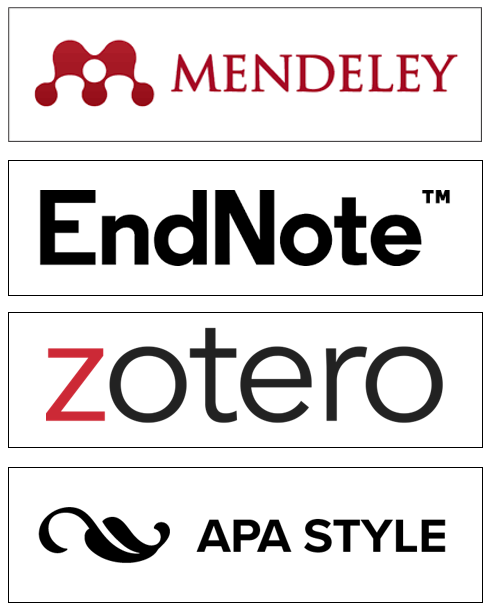The Effect of Destination Personality on Behavior Intention and Self Congruity as Intervening Variables
Abstract
Behavior intention has become a fundamental strategic metric to evaluate the success of tourist destinations. Behavior intention can be built through strong branding. Furthermore, the 2 elements of destination branding that can be used are destination personality and self-congruity. This study investigates: (1) Significant effect of destination personality on self-congruity. (2) significant effect of self congruity on behavior intention, (3) significant effect of destination personality on behavior intention, (4) significant effect of destination personality on behavior intention through self-congruity. Research conducted in tourist destinations Obelix Hills Yogyakarta. The sample criteria used were tourists who have never visited. Data collection using google form and 151 questionnaires were collected which were then processed using Structural Equating Modeling (SEM). This study found that (1) destination personality has a significant effect on self-congruity, (2) self-congruity has a significant effect on behavior intention, (3) destination personality has a significant effect on behavior intention, (4) destination personality has a significant effect on behavior intention through self-congruity. Destination Personality to be explored and highlighted in promoting the destination so that it can become a value for tourists.
Full Text:
PDFReferences
Aaker, JL (1995). Brand personality: Conceptualization, measurement and underlying psychological mechanism doctoral dissertation. Available from ProQuest dissertations and theses database. UMI no. 9602828
Aaker, D. (1996). Building Strong Brands. New York: The Free Press.
Aaker, JL (1997). Dimensions of Brand Personality. Journal of Marketing Research, 34(3), 347- 356
Aaker, JL (1999). The malleable self: the role of self-expression in persuasion. Journal of Marketing Research, 36, 45e57
Ahn, T., Ekinci, Y., & Li, G. (2013). Self-congruence, functional congruence, and destination choice. Journal of Business Research, 66(6), 719–723. https://doi.org/10.1016/j.jbusres.2011.09.009
Ardyan, E., & Wibisono, U. (2019). Between Self Congruity, Destination Relationship and Memorable Tourist Experience: An Empiric Study on the Loyalty of Tourist Destination. Jurnal Dinamika Manajemen, 10(1), 111–123. https://doi.org/10.15294/jdm.v10i1.17408
Avis, M., & Aitken, R. (2015). Brand personification, brand personality and brand relationships in historical perspective. Journal of Historical Research in Marketing, 7(2), 208–231. https://doi.org/10.1108/JHRM-01-2014-0004
Belanche, D., Casaló, L. v., Flavián, M., & Ibáñez-Sánchez, S. (2021). Understanding influencer marketing: The role of congruence between influencers, products and consumers. Journal of Business Research, 132, 186–195. https://doi.org/10.1016/j.jbusres.2021.03.067
Cai, L. A. (2002). COOPERATIVE BRANDING FOR RURAL DESTINATIONS. In Annals of Tourism Research (Vol. 29, Issue 3). www.elsevier.com/locate/atoures
Chon, K.-S. (1992). Self-Image/Destination Image Congruity. In Ann& of Tourism Ruearch (Vol. 19).
David_A_Aaker_1996. (n.d.).
Ekinci, Y., & Hosany, S. (2006). Destination personality: An application of brand personality to tourism destinations. Journal of Travel Research, 45(2), 127–139. https://doi.org/10.1177/0047287506291603.
Ghozali, Imam. 2017. Structural Equation Model Concepts and Applications With the AMOS 24 Program. Semarang: Diponegoro University Publishing Agency.
Gnoth, J., Baloglu, S., Ekinci, Y., & Sirakaya-Turk, E. (2007). Introduction: Building destination brands. In Tourism Analysis (Vol. 12, Issues 5–6, pp. 339–343). Cognizant Communication Corporation. https://doi.org/10.3727/108354207783227902
Govers, P. C. M., & Schoormans, J. P. L. (2005). Product personality and its influence on consumer preference. Journal of Consumer Marketing, 22(4), 189–197. https://doi.org/10.1108/07363760510605308
Hosany, S., Ekinci, Y., & Uysal, M. (2007). Destination image and destination personality. International Journal of Culture, Tourism and Hospitality Research, 1(1), 62–81. https://doi.org/10.1108/17506180710729619
Hosany, S., & Martin, D. (2012). Self-image congruence in consumer behavior. Journal of Business Research, 65(5), 685–691. https://doi.org/10.1016/j.jbusres.2011.03.015
Kim, W. H., Malek, K., Kim, N. J., & Kim, S. H. (2018). Destination personality, destination image, and intent to recommend: The role of gender, age, cultural background, and prior experiences. Sustainability (Switzerland), 10(1). https://doi.org/10.3390/su10010087
Klipfel, J. A. L., Barclay, A. C., & Bockorny, K. M. (n.d.). Self-Congruity: A Determinant of Brand Personality.
Kumar, V. (2016). Examining the role of destination personality and self-congruity in predicting tourist behavior. Tourism Management Perspectives, 20, 217–227. https://doi.org/10.1016/j.tmp.2016.09.006
Liu, C. R., Lin, W. R., & Wang, Y. C. (2012). From Destination Image to Destination Loyalty: Evidence From Recreation Farms in Taiwan. Journal of China Tourism Research, 8(4), 431–449. https://doi.org/10.1080/19388160.2012.729427.
Machin, David; Campbell, Michael J; Tan, Say Beng; and Tan, Sze Hyue. 2009.Sample Size Tables for Clinical Studies. UK: John Wiley & Sons Ltd.
Morgan, N., & Pritchard, A. (n.d.). Destination Branding: Creating the Unique Destination Proposition.
Murphy, L., Moscardo, G., & Benckendorff, P. (2007). Using brand personality to differentiate regional tourism destinations. Journal of Travel Research, 46(1), 5–14. https://doi.org/10.1177/0047287507302371
Nugraha, K. B. S. W., & Anggita, R. M. (2020). IS Cultural Background Moderating The Destination Personality And Self Image Congru-ity Relationship Of Behavioral Intention. Journal of Applied Management (JAM), 18(2), 353–362. https://doi.org/10.21776/ub.jam.
Park, HH, & Jung, GO (2010). A study on the impact of the congruence of store personality and self-image toward relationship strength and store loyalty. Journal of Marketing Studies, 16, 45e68
Pearce, D. G., & Schänzel, H. A. (2013). Destination management: The tourists’ perspective. Journal of Destination Marketing and Management, 2(3), 137–145. https://doi.org/10.1016/j.jdmm.2013.06.001
Phucharoen, P., Assarut, N., Phucharoen, P., Sriboonlue, U., & Assarut, N. (2016). The effects of destination image, destination personality and self-congruity on tourists’ intention Elderly aging soceity and intergenerational society View project Psychic Distance and Country Image Effects on International Healthcare Services View project THE EFFECTS OF DESTINATION IMAGE, DESTINATION PERSONALITY AND SELF-CONGRUITY ON TOURISTS’ INTENTION. https://www.researchgate.net/publication/316475324
Prayag, G. (2007). Exploring the Relationship between Destination Image & Brand Personality of a Tourist Destination-An Application of Projective Techniques. In Journal of Travel and Tourism Research.
Sirgy, M. J., Johar, J. S., Samli, A. C., & Claiborne, C. B. (n.d.). Self-Congruity Versus Functional Congruity: Predictors of Consumer Behavior.
Sirgy, M. J., & Su, C. (2000). Destination image, self-congruity, and travel behavior: Toward an integrative model. Journal of Travel Research, 38(4), 340–352. https://doi.org/10.1177/004728750003800402.
Suryaningsih, IB, Nugraha, KS, and Anggita, RM 2020. Is Cultural Background moderating the Destination Personality and Self Image Congruity Relationship of Behavioral Intention. Journal of Applied Management, 18, 353-362.
Usakli, A., & Baloglu, S. (2011). Brand personality of tourist destinations: An application of self-congruity theory. Tourism Management, 32(1), 114–127. https://doi.org/10.1016/j.tourman.2010.06.006
DOI: https://doi.org/10.31315/jubir.v1i2.8041
Refbacks
- There are currently no refbacks.

This work is licensed under a Creative Commons Attribution-ShareAlike 4.0 International License.
Contact Us:
|







